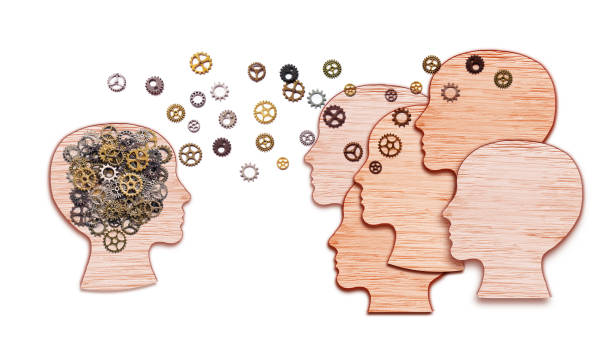Health Conditions, Mental Well-Being
What Are Early Signs Of Dementia
Do you find yourself forgetting things more frequently lately? Are you misplacing your keys or having trouble remembering names? These could be early indications of dementia. Dementia is a degenerative disorder that impairs the brain’s ability to think, remember, and reason. Recognizing early signs allows you to seek early assistance and enhance your quality of life. In this article, we’ll look at the early indicators of dementia and how to identify them.
Understanding the Early Signs of Dementia
Dementia is a degenerative disorder that affects millions of individuals worldwide. Understanding the early warning symptoms is critical to ensuring proper diagnosis and treatment. While forgetfulness is a natural aspect of aging, chronic memory issues may suggest a more serious underlying condition. Early detection enables individuals and their families to prepare for the future, make required lifestyle adjustments, and seek appropriate support and care.

Memory Loss and Forgetfulness
Memory loss is one of the most common early indications of dementia. This can result in forgetting recent discussions, appointments, or occurrences. You may find yourself having difficulty recalling crucial facts that you used to remember easily. For example, you may forget where you put your car keys or have trouble recalling the names of known individuals or objects. These memory gaps can be modest at first, but they can become more common and evident with time.
Individuals with early dementia may struggle with both short-term and long-term memory. They may struggle to recall important life occasions like birthdays and anniversaries. Multi-step tasks, such as following a recipe or working with numbers, can be difficult to remember. It’s critical to monitor these memory issues and get medical help if they persist or worsen.

Difficulty with Language and Communication
Another early indication of dementia is difficulty finding the correct words or talking effectively. You may have frequent word-finding pauses or struggle to convey your ideas clearly. This can cause annoyance, anxiety, or embarrassment. Your loved ones may notice that you constantly repeat yourself or use unclear terminology when communicating. Difficulties with language and communication can have an influence on everyday interactions, making it difficult to engage in conversations or convey your needs and emotions.
Individuals suffering from dementia may struggle to understand and follow instructions as the disease develops. They may have difficulty comprehending written or spoken information, resulting in misconceptions or confusion. If you observe persistent language challenges or changes in your ability to speak effectively, you should see a healthcare professional for further examination and advice.

Confusion and Disorientation
Confusion and disorientation are common early symptoms of dementia. You may become disoriented in familiar surroundings or have difficulty identifying locations or faces. It is not commonplace to overlook the day of the week, the date, or even the season. You may have difficulty following instructions or traversing known roads. These moments of confusion and disorientation can be upsetting, so it’s critical to seek medical attention for a thorough evaluation.
In addition to spatial and temporal disorientation, people with dementia may have difficulty recognizing objects. They may struggle to identify everyday goods or understand their significance. For example, individuals may forget how to handle household appliances or have difficulty recognizing familiar faces in images. These cognitive changes can have an influence on daily functioning and independence, so it’s critical to treat them early on.

Changes in Mood and Personality
Dementia can also result in severe changes in mood and personality. You or a loved one may feel irritability, mood swings, or unexpected outbursts of wrath. Individuals suffering from dementia are often prone to depression and anxiety. You may experience a loss of interest in formerly enjoyable hobbies or a withdrawal from social connections. Changes in personality can be upsetting for both the individual and their loved ones, therefore it’s critical to seek help and professional advice to manage these emotional and behavioral changes.

Impaired Judgment and Decision-Making
Impaired judgment and decision-making are early indicators of dementia, which can have catastrophic repercussions. You may have difficulty making sound judgments or appropriately assessing dangers. This might result in poor financial decisions, trouble managing prescriptions, or ignoring personal care and safety. Family members may notice a loss in your capacity to plan and arrange daily activities or make sound decisions. It is critical to include healthcare professionals and caregivers in decision-making processes to protect the individual’s health and safety.

Trouble with Completing Familiar Tasks
As dementia advances, people may struggle to complete familiar tasks. Cooking, utilizing electronics, and managing domestic chores may all become more difficult. You may find it difficult to follow a recipe or use household appliances. These changes can be annoying and have an influence on daily functioning. It is critical to seek support and consider measures to maintain independence and quality of life.
Seeking Medical Advice and Diagnosis
While these symptoms can be concerning, it is important to realize that not all memory problems signal dementia. Memory impairments can be caused by a variety of circumstances, such as pharmaceutical side effects, stress, or other medical disorders. To get an accurate diagnosis, you must consult a healthcare professional. They will conduct a full evaluation, which will include cognitive tests, a review of your medical history, and physical exams. Additional testing, such as blood work or brain imaging, may be required to rule out other possible reasons of cognitive loss.
Early detection enables early intervention and access to necessary support and resources. It allows you to investigate therapy choices, lifestyle changes, and possible participation in clinical trials or research projects. A prompt diagnosis also allows people and their families to plan for the future, make legal and financial arrangements, and have access to support networks and care services.
Conclusion
To summarize, detecting early indicators of dementia is critical for prompt intervention and enhanced quality of life. Memory loss, problems with language and communication, confusion and disorientation, changes in mood and personality, decreased judgment and decision-making, and difficulty completing familiar tasks are all possible signs of dementia. However, it is critical to consult a healthcare professional for an appropriate diagnosis, as a variety of causes might contribute to memory issues. Early detection enables individuals and their families to receive proper care, prepare for the future, and make required lifestyle changes. If you or a loved one exhibits any of these symptoms, do not hesitate to seek medical attention. Early intervention can help manage the disease and preserve a greater quality of life.


